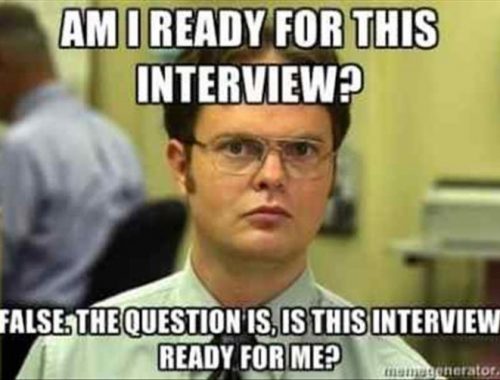Uninterested teenagers in Drama?
Uninterested teenagers in Drama?
“Education is probably the most powerful influence on the development of our society. The education that young people receive through schooling goes beyond knowledge about a body of academic subjects: it is built upon and shapes the values, rights, and responsibilities that make our society distinctive.”[1]
As a teacher’s assistant, my eyes have been opened to the lives of Year Nine, Ten, and year thirteen’s in 2022. Having left secondary school nearly four years ago, I had almost forgotten what it was like to be a teenager, navigating my way through the challenging years at secondary school. So far, I have found it thrilling to be able to help teach students about Drama and English, and take my own experiences within the subjects, thus far, and share them with the students to help them succeed in their studies. To describe my experience, I will be using Gibbs’ reflective cycle model (1998) to reflect on and evaluate my time at St.Marks High school so far.
[2]2.

Description – The class consisted of year 10 pupils, the title of the topic for the first week was teaching the students the definition of ‘genre’. The purpose was to allow the students to understand what is meant by genre, and the features of different types of genres and to physicalize some of the aspects of the genre. The class began with a warm-up exercise, the kids walked around the room and had to perform different actions compared to the ones demanded. Students were asked to give examples of genres. Once a sound understanding was formed, students partook in ‘busy bees’ and had to freeze in the shape of different genres, one of the students did not enjoy this exercise and refused to get involved, which resulted in him having to sit out and do theory work instead as ordered by the teacher. Pupils were then split into groups and were asked to devise a one-minute piece on the genre of soap operas.
Feelings – Initially I was nervous, the attitude of the students was a lot different from those of the students in the year 9 class. The students appeared to feel a lot more mature and did not have the same outgoing and innocent attitudes as those in year nine. They didn’t appear to have a lot of interest in the lesson topic or the exercises when described to them. This made me apprehensive about the material of the session, as I worried they may not be as willing to get involved with the class activities. My anxiety was confirmed as a student who, clearly had a reputation for being ‘cool’, as the kids say, refused to partake. Explaining that he ‘couldn’t be bothered’ and ‘thought it was stupid.’ Nevertheless, this worried me as I feared the attitude may be resembled by other students, as they too, at first, appeared reluctant to engage.
Evaluation – I felt the simple warm-up was effective as it resulted in the desired effect, the kids were warmed up, both physically and mentally, and were more engaged in the content for the rest of the lesson than when they first came in. Also, I was able to work on my leadership skills and was able to step up and take control of a situation, something I had not done before. My skills within Drama and working as a team helped me throughout this lesson as I was able to be vocal and ensure that the kids understood their assignment and help them succeed in it. By providing examples of shows they might have seen, such as Coronation Street, and acting scenarios and tips while they practiced. The students enjoyed it once, after encouragement, they put effort into their performances and impressed their peers, it was clear they felt proud of themselves and enjoyed performing the scenes, especially comedy.
Analysis – Essentially, I think the students didn’t respond well at the start of the exercise where they had to freeze frame in different genre features, due to not wanting to do something that might make them look silly and embarrass them in front of their peers. This may have been the reason why one student refused to take part in the exercise and said he thought it was ‘stupid.’ It was clear he was popular among the class and maintained a level of influence over the boys in the class. This was clear as once he was removed from a different part of the room, everyone in the class got more involved in the exercises.
Conclusion – To conclude, I learned leadership and problem-solving skills from this experience as I was able to see how to deal professionally, and efficiently with a reluctant student creating a difficult scenario in front of a full classroom. To avoid the scenario from happening in the first place, I could have spent more time focusing on confidence building, and warm-up exercises, maybe this could have relaxed the students a little more and kept them engaged for the length of the lesson.
Action Plan – If there was anything I would change about this experience, I would have avoided the students walking around the room whilst taking part in the freeze frame exercise, and would have split them up and asked them to face the front of the room, to avoid any feelings of embarrassment of having to look directly at one of your peers whilst acting. This would help build confidence amongst the students, offering little room for distraction.
Bibliography
- Capel, S, Leask, M, & Younie, S (eds) 2019, Learning to Teach in the Secondary School : A Companion to School Experience, Taylor & Francis Group, Milton. Available from: ProQuest Ebook Central. [25 November 2022].
- University of Edinburgh, 2020. Gibbs Reflective Cycle. https://www.ed.ac.uk/reflection/reflectors-toolkit/reflecting-on-experience/gibbs-reflective-cycle. Edinburgh, Scotland.
[1] Capel, S, Leask, M, & Younie, S (eds) 2019, Learning to Teach in the Secondary School : A Companion to School Experience, Taylor & Francis Group, Milton. Available from: ProQuest Ebook Central. [25 November 2022].
[2] University of Edinburgh, 2020. Gibbs Reflective Cycle. https://www.ed.ac.uk/reflection/reflectors-toolkit/reflecting-on-experience/gibbs-reflective-cycle. Edinburgh, Scotland.
You May Also Like

“Fake it ‘til you make it!”: Finding Success in a Simulated Interview
22 February 2023
Working with a Production House
30 November 2022
